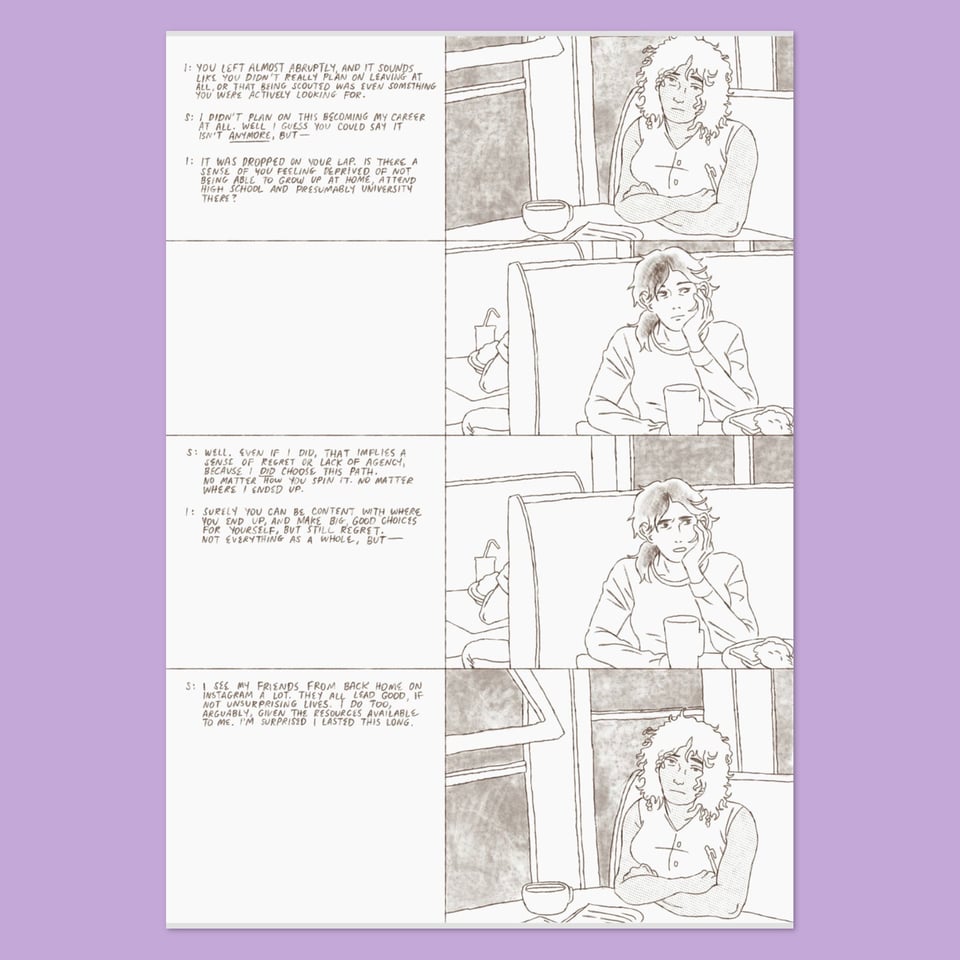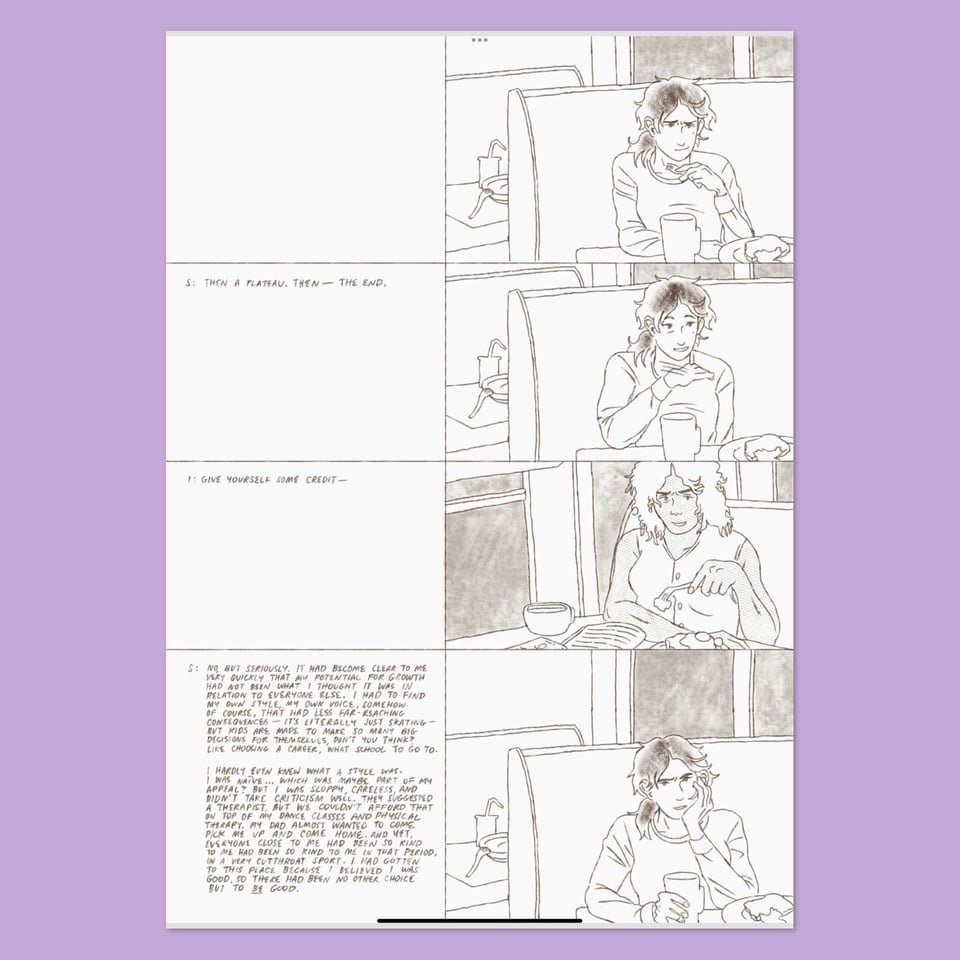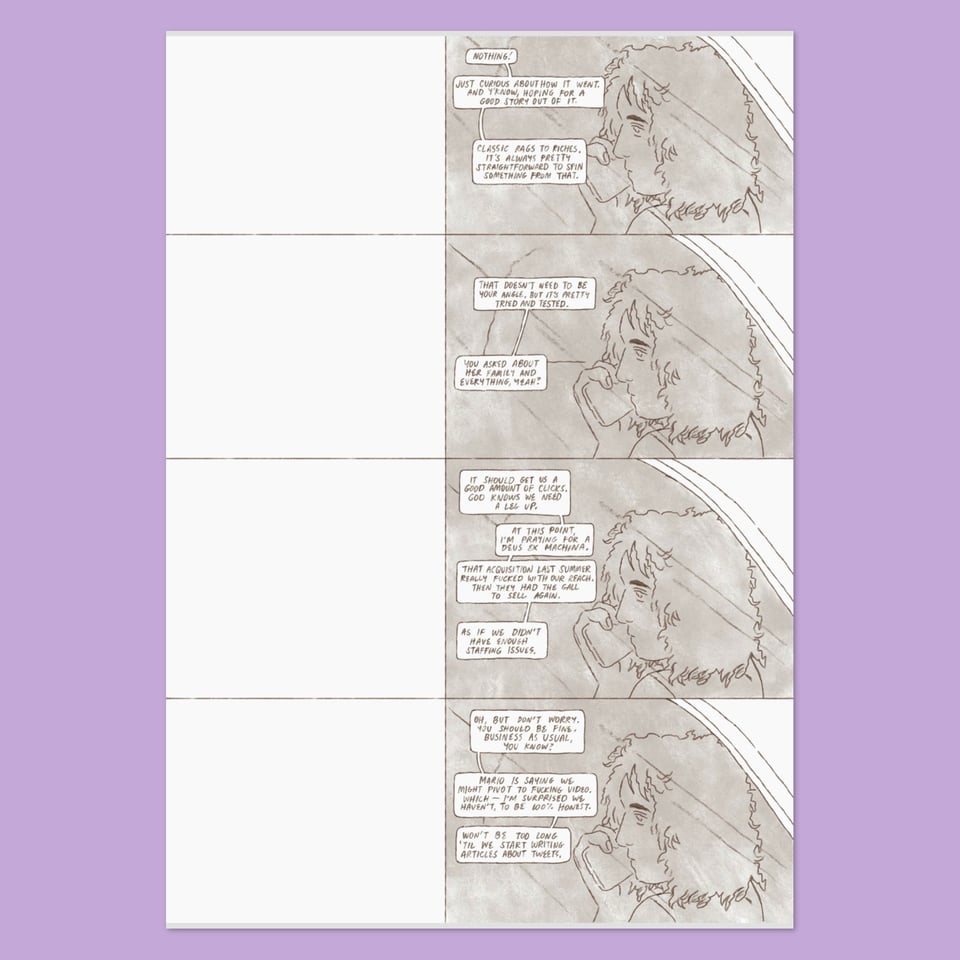Review: French Exit (2023)

30 Comics in 30 Days - I’m reviewing a comic every day in November!
Day 12 - French Exit by Elle Shivers. (Follow and support their work @tamingservice)
This is a sports comic, but it's one that will upend your expectations of what a comic about sports can, and should, do. Truthfully, it's probably wrong to even call French Exit a “sports comic.” It's a comic about the wounds made invisible by traditional sports narratives. It’s about the shadowy things that perch outside the frame, that don’t get seen or acknowledged in the usual stories we tell about athletes.
Where sports comics are about bodies in motion, French Exit features bodies at rest. There is no overt action and little physical motion. The panels are intentionally repetitive, the perspective static. For most of the book, we follow the same two people, a retired figure skater and a journalist, as they sit across a table from each other. The journalist is interviewing the former skater, and the transcript of that interview runs parallel to the subdued images.
The “former” is significant: This is not a narrative about an underdog athlete pushing themselves to the limit for the sake of a dream. It is, frankly, a story about quitting. The skater, whose name is never given, dropped out of her sport after a serious injury and is now drifting, in her words, “into unknown territory.” She’s in this moment of uncertainty because she wasn’t willing to destroy her body for skating. As she tells the journalist, “Having no redemption arc is okay.”
Though the skater is always polite, her refusal to participate in a redemption storyline — or in ANY simple storyline — is an implicit challenge to the journalist. Structurally, French Exit is a jab at traditional sports comics, but its content is also a critique of sports journalism that imposes narratives out of necessity, even when such narratives are incomplete or distorted.
One example: Near the end of the comic, the journalist’s editor pushes her to write her piece about the skater as a “classic rags to riches” sob story. Yet the skater, who was born in the Philippines and moved to the U.S. as a teenager, explicitly rejects this framing. It’s not that she didn’t have it hard. But the challenges she faced were more complex and have to do with the political structures of international competition, including the way Filipino passports don’t open doors in the same way that American citizenship does.
The comic gestures towards the broader economic realities of digital journalism that make the situation worse — overworked editors, an emphasis on “clicks,” acquisition by horrible owners. But French Exit suggests that the need to find, or perhaps manufacture, a coherent story can erase the quiet, unsatisfying, and inconvenient parts of an athlete’s career, depriving them, ultimately, of their full humanity.
Follow my bookstagram: @panthercitybooks


